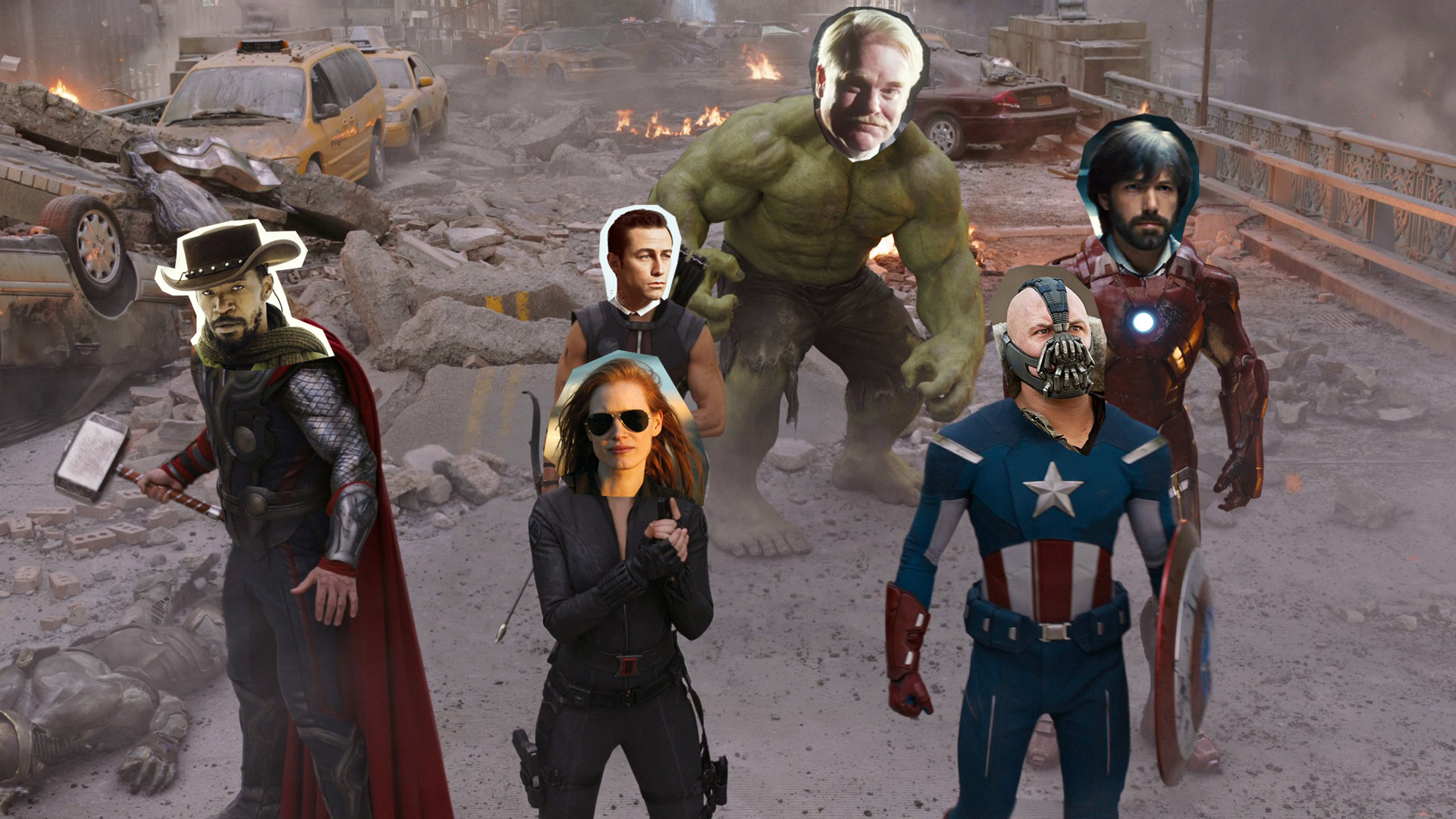
It’s possible I took this list a bit too seriously this year.
I may balk at the constant ranking and award-giving that seems to occupy so much of the discussion that surrounds film, but it’s at this time of the year that I remember that the film lovers who don’t see practically every new release are likely overwhelmed by the increasing number of new titles that appear in multiplexes, arthouse palaces, film festivals, video stores (remember those?) and online. If a ‘best of the year’ film list has any use to anyone, it’s pointing them towards the gems worth seeking out.
Before we get started, I’m going to confess that my approach to release dates is somewhat inconsistent. Because you are reading this on the World Wide Web, this list is, where possible, made up of films that were originally, internationally released in 2012. This was not always possible; I was unable to view some 2012 films that are being released in Australia in 2013 (Lincoln and Silver Linings Playbook, for instance), although I made a bigger dent in them than I ever have before. Some 2011 films made it into here by sheer necessity; others did not. Hugo, Shame and some others which were released in Australia in January made it onto my Best of 2011. It’s really best not to think too hard about it.
Enough preamble. On with the show.
The Ten Best Documentaries of 2012
10. AI WEIWEI: NEVER SORRY
A screener for this film arrived in the letterbox only a couple of days ago, edging its way slyly onto this list (deepest apologies to the amazing Palestinian documentary 5 Broken Cameras). It’s appropriately defiant behaviour for a film about Chinese artist and political activist Ai Weiwei, a compelling and controversial figure who has been unafraid to challenge the Chinese government, and has both gained and suffered for it. The film shows us the best and worst of Ai Weiwei, and takes some truly surprising turns. A fantastic, essential film.
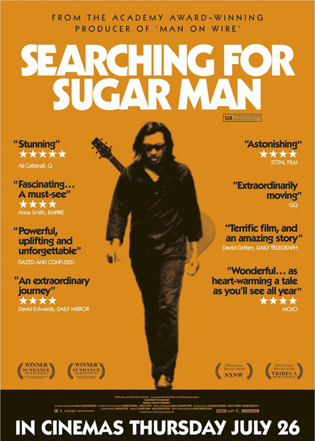
9. SEARCHING FOR SUGAR MAN
The first of two documentaries in this list about US artists and what they meant to South Africa during Apartheid. This brilliant film follows the search for 1970s musician Rodriguez long after he became a huge and unlikely phenomenon. His fans attempt to identify which of the many stories of his death may be real, and discover that the truth is more extraordinary than even the wildest of the myths.
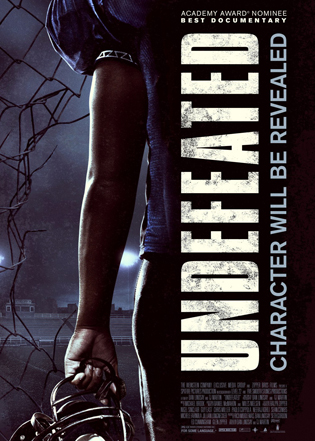
8. UNDEFEATED
This story of an American football coach inspiring school kids on the verge of being spat out by a creaking school system is impressive not just because coach Bill Courtney is himself an inspirational character, or because underneath the anger issues of the kids themselves you see a genuine desire to succeed and improve, but because the film is itself restrained and devoid of emotional manipulation. The filmmakers astutely note that manipulation is irrelevant, as it is difficult not to tear up at the highs and lows of this extraordinary story.
7. SIX MILLION AND ONE
When four adult siblings attempt to retrace the journey their father took when he was interred in an Austrian concentration camp, long-held conflicts come to the surface. They cannot even agree on the merit of the trip itself, and across the three brothers and one sister we see the spectrum of society’s reactions to the Holocaust compressed. It’s never the destination, it’s always the journey, but even this family does not quite understand the nature of their journey until they’re on it. The more time we spend with them as they bicker and laugh and bicker again, the more time we want to spend with them. One of the most important films of the year.
6. DETROPIA
Even outside of the US, ‘Detroit’ has become a catchcry that summons images of closed-down factories and dilapidated housing. Detropia does little to dissuade us of this notion, but in telling the story of the town from the perspective of its denizens, it feels as if it is a thoroughly untold story. Beautifully, stunningly made, the film begins with a stark juxtaposition between the haves and the have-nots, before delving into the oft-ignored nuance of the problem. The attractive aesthetics prevent the film from descending into a predictably-didactic angry shout. Its gentleness is the secret of its impact, its compelling characters and breathless moments that make it a truly superb work.
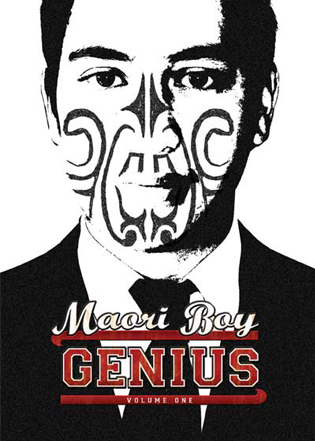
5. MAORI BOY GENIUS
It’s tempting to think that, when we watch this film, we’re only viewing the first part of a story that will go on, and the ‘Volume One’ that appears quietly in the opening credits seems to share that optimism. Ngaa Rauuira Pumanawawhiti is an extraordinary kid: academically gifted, politically astute, an avid reader, athletic, popular, and with deep ties to his Maori community. It sounds like hyperbole when friends and family members insist that he’s the future Prime Minister of New Zealand, but it’s hard to shake that creeping feeling as we spend more and more time with him. Here’s hoping Volume Two sees him soar to even greater heights.
4. WOODY ALLEN: A DOCUMENTARY
A daring title earns its definitiveness by, over the course of its entirely-justified 192 minutes, covering everything from Woody Allen’s early life to his stand-up career to his tabloid controversies to his outstanding filmography. Despite what its running time suggests, this is a concise, tight, compelling insight into one of the most fascinating artists of our time, never white-washing the controversies, never deifying the man, but never underselling the achievements.
3. THE IMPOSTER
Five minutes into The Imposter, you think you’ve seen the biggest revelation this film has to offer. You think that once again at the half hour mark. And once more at the one hour mark. Each time, you are wrong. The Imposter tells a story so impossible that you never once doubt its veracity, as the film unravels in a way that refuses to disengage you. It’s not above outright manipulation, though; had a late twist panned out the way it suggests it will, this would have been in the number one spot. Regardless, this is one of the most masterful and shocking docos you will see all year.
2. JIRO DREAMS OF SUSHI
Jiro may well be the best sushi chef in the world, running a tiny restaurant that has now gained international fame. Despite his advanced age, he shows no sign of retirement, which is a source of frustration for his eldest son Yoshikazu, who, in his 50s, is waiting patiently in the wings. My favourite documentaries are often the ones that take a subject I have no interest in, and convince me of its import. I do not eat sushi, but as the film went on, I felt as if it was one of the great artistic endeavours in the culinary world, and I was its most ardent supporter. This is a testament to the filmmaking; yes, it’s an interesting story, but the manner in which it is told elevates it to something else altogether.
1. UNDER AFRICAN SKIES
I was initially reluctant to see this film. A look back at the twenty-five years since Paul Simon’s Graceland was released – and with Graceland being one of my favourite albums of all time – I was afraid the film would either be a fashionable attack on the controversy Simon created at the time, or a brown-nosing puff piece, neither of which interested me. Thankfully, Joe Berlinger’s film is the most perfectly-balanced documentary I may have ever seen, being both a celebration of the work, and an examination of the very complex political and social implications of Simon breaking the Apartheid boycott. No position is ignored, with Simon’s supporters and detractors given equal time to eloquently make their case; the film’s most compelling moments involve Simon sitting down for a cup of tea with his most vocal critic so that they can finally explain their positions to one another. Civility, it turns out, can be interesting to watch. With the perfect balance between archive footage and new, between talking and performance, between the music and the politics, this is a film that leaves you wanting nothing. As close to perfect as we’re likely to see.
The Fifty Best Films of 2012
I know what you’re thinking: fifty films is pretty indulgent, especially given I’ve already separated the documentaries. (Okay, it’s not exactly what you were thinking, but I had to remove the swears.) But here’s the thing: I see hundreds of films every year – there’s a complete list at the bottom if you’re keen – and if I’m not seeing at least fifty films I love, then I need to find something else to do with my time. And that’s the only requirement for a film to make it onto this list: I have to love it. I’ve no interest in including something because it’s ‘worthy’, or excluding something because it’s mainstream, or trying to maintain/create street cred with critically-acclaimed titles. There were some left-field titles I loved that I had to cull – yes, there was some culling, even from a list this epic – and it kills me that I had to lose titles like Tomboy, Alps, Flicker, Tabu and Killer Joe. But hey, I had to be disciplined. Or, at least, my version of disciplined. So here, in order of adoration, are my fifty favourite films of 2012.
50. THE SOURCE
With their men indolent, and the water supply remote, the women of a North African village decide to stop working and go on a sex strike until conditions change. This beautiful film examines what tradition actually means, and what progress within that tradition can look like. It is a suitably-sparse film, coloured with well-judged metaphors, genuinely laugh-out-loud moments, and some incredibly complex character work.
49. HEADHUNTERS
Girls with clumsily-plotted tattoos may have made me wary of Scandinavian thriller adaptations, but the work of Norwegian author Jo Nesbø is slowly winning me back. Nesbø’s Jackpot may have been enjoyable-but-disposable silliness, but his Headhunters was a fantastically-tense and intricate thriller, filled with incredibly satisfying twists and turns. The setups may be obvious, but – and this is rare – the payoffs are not. Brilliant stuff.
48. CORIOLANUS
This rare adaptation of one of Shakespeare’s lesser-performed plays is respectful without being dusty, accessible without being dumbed-down, edgy without being superficial. My few problems with the film stem mainly from the source material – it’s not Shakespeare’s strongest play, and the ending is a shade more limp than it should be – but as a fan of Shakespeare’s entire canon, I was truly overjoyed at seeing it performed with such energy, and gripped from beginning to end.
47. LOVE IS ALL YOU NEED
The images conjured by the poster for Love Is All You Need are not inspiring ones. It immediately calls to mind the vapid, pandering travelogue films pitched at the blue rinse set, and Pierce Brosnan’s position against a Mediterranean backdrop unwisely reminds us of the nightmarish Mamma Mia. But here’s the thing: the film is directed by Susanne Bier, the Danish director behind, amongst others, the blistering In a Better World. What she’s made is an anti-It’s Complicated, deliberately fooling us into thinking it’s a traditional romance with its pat title and flowery opening sequence. These, however, are real, flawed characters who rarely act or react in a way that films of this ilk would normally dictate. Pierce Brosnan gives a career-best performance, but Trine Dyrholm is the real standout. Vulnerable and endearing, her Ida is what truly elevates this surprising film.
46. DECLARATION OF WAR
It wasn’t until I was watching Declaration of War that I realised how cinema’s usage of a child’s illnesses is frequently used to illustrate some sort of ‘larger’ point, more often than not the relationship between the two parents who must care for it. Although Declaration does devote time to this angle, it is clear that the process of taking care of the child is the primary concern. Little wonder, given it’s based on the real life story of the two lead actors/writers (one of whom also directed). Emotional and honest, the film recalls this year’s Café de Flore, not quite dipping its toes into magical realism, but certainly unafraid to engage in heightened reality when the filmmakers feel an important point cannot be made with reality alone. Moving, confident and gorgeous to look at.
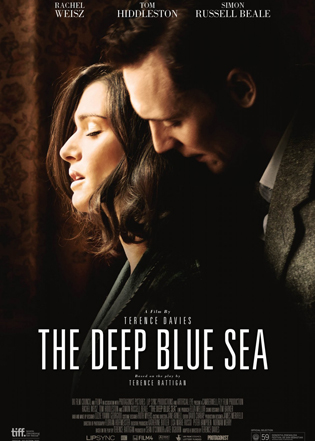
45. THE DEEP BLUE SEA
Few films that purport to be about love evade the romantic and the pleasant in favour of its destructive tendencies: not just the destructiveness of its side effects, but of the love itself. That The Deep Blue Sea is focused purely on this idea makes it a standout. Rachel Weisz’s Hester shares much in common with Michelle Williams’s Margot from Take This Waltz (which does not, but should, appear on this list) in her tragic foresight. Like Cassandra, they seem to be completely aware of their fate, and equally unable to avoid it. Director Terence Davies, here adapting the play by Terence Rattigan, eschews his acidic, acerbic voice – I am a tragic devotee of his documentary Of Time and City, and cannot think of the man without hearing his wonderfully grumpy narration – in favour of a very introspective, gently-handled story. Rachel Weisz is incredible and heart-breaking, but Simon Russell Beale owns the screen in this superb drama.
44. JEFF WHO LIVES AT HOME
There are some films that seem limited by their ambition, and from the outset, this mumblecore-rooted film about self-centred family members unable to properly function within the narrow parameters of their lives seems like it would – even at its best – have little chance of achieving greatness. The triumph of Jeff Who Lives At Home is that it achieves just that. Directed by Mark and Jay Duplass, this film is a perfectly-formed work about how one man’s childish and insane worldview brings a much-needed simplicity to his brother’s life, in a way that is nowhere near as trite as my description. It does more with its 83 minutes than most films do with over two hours.
43. YOU WILL BE MY SON
Playing at the French Film Festival earlier this year, I saw this film and immediately fell in love with it, long before Australian distributor Sharmill Films – for whom my partner is Marketing Manager – picked it up. This winery-set film about a fraught father-son relationship thankfully avoids the incessant aphorisms comparing life to wine (I’m looking at you, A Good Year), despite the fact that it features a character who does occasionally insist upon doing just this. In this film, as in real life, nobody is fundamentally changed by a speech or an action: people remain belligerent and stubborn in their ways. A truly beautiful film.
42. LOOPER
The best science fiction films tend to take one remarkable idea and explore it fully. Looper’s approach to time travel is a unique one, and writer/director Rian Johnson finds every nuance in his idea, and ensures he’s always one step ahead of us. Although the unexpected introduction of a kid-with-powers is a bit of a throw, it’s more Shining than Superman Returns, and ends up working in the film’s favour, consistent with the world we’re in. As most American science fictions take an interesting concept and warp it into a standard action film, Looper refuses to let go of its root concept, and the thrills come from watching it explore the facets of its own mythology. It’s a joy to see SF done properly.
41. THE LEGEND OF KASPAR HAUSER
Part 41 of Why The Hell Did You Put This In Ahead Of Holy Motors? is a film that, by all rights, should be on my (unpublished) Worst of 2012 list. Perhaps it benefited from being viewed at a film festival, sandwiched between two films I disliked significantly (glacial Hungarian drama Just the Wind and reprehensible US horror V/H/S), but it crept up on me in the hours and days following. Imagine a science fiction/fantasy set within the Dead Man universe, as directed by Lisandro Alonso; so self-consciously odd, it defies critiquing. I know, I’m not selling it at all. And that’s probably best, given I’m firmly in the minority on this one. But six months on and I can’t get this impenetrable, compelling film out of my head. Nobody is more surprised than I that this is one of my favourites.
40. LIKE SOMEONE IN LOVE
For most filmmakers, the concept behind Like Someone In Love would be treated like a comedy of errors; for Abbas Kiarostami, it is a whimsical drama of a single misunderstanding. His story of a young prostitute whose elderly professorial client ends up posing as her grandfather in front of her abusive boyfriend is an odd one. It’s deeply beguiling throughout, as is Kiarostami’s style, with an ending that seems deliberately designed to wrong-foot us. As with his Certified Copy (my number one pick last year), there is a deeper mystery hidden beneath the surface, but the nature of the surface alone makes this film an undeniable gem.
39. ON THE ROAD
Jack Kerouac’s On the Road has long been considered unfilmable, but I’ve always suspected that this is due to the sheer weight of expectation over its unconventional narrative. And yet, beyond all reason, Walter Salles succeeds. The rambling, stream-of-consciousness mood of the book is expertly translated to the screen, with great performances from Garret Hedlund (ensuring I can no longer make fun of him for Tron Legacy), Sam Riley (surely the most aesthetically-enthralling actors in the world), Kristen Stewart (finally breaking free of her morose Twilight stereotype), and Viggo Mortensen (whose William S Burroughs impression is the clear highlight of the film). Using its lack of a strong narrative and its lengthy running time to its advantage, the film skirts the edges of true greatness.
38. CAESAR MUST DIE
Caesar Must Die’s unique nature left me kvetching as to whether it belonged in the documentary list or the narrative list. Unlike the similarly-themed documentary Shakespeare Behind Bars, or the This American Life episode ‘Act V’, this particular story of prisoners engaging with Shakespeare is a stylised and poetic take that studiously blurs the line between fantasy and reality. The film is not exclusively a tale of inmates performing Julius Caesar, but nor it is simply an analogous adaptation of Julius Caesar set inside a modern-day prison. It is both and neither at once, constantly questioning its own reality. The way in which the play – which is not overtly about the concept of freedom – is used to illuminate a life of imprisonment is inspired. Subtle, yet powerful.
37. BERBERIAN SOUND STUDIO
It’s fitting that I should see this film in Cinema 2 at ACMI (the Australian Centre for the Moving Image), given the last time I was in there was about a month ago when the band Goblin played the score to Dario Argento’s Suspiria live as the film played above them. It was an impressive show, and set the scene nicely for Berberian Sound Studio, a film in which sound technicians are employed to perform ADR and sound effects for an Italian Argento-esque film that we never see. Berberian is a film about how sounds reflect human nature. Up against both language and personality barriers, Toby Jones’s Gilderoy struggles with an increasingly-blurred reality that is not so much experienced as it is performed. A remarkable, rewarding work.
36. THIS MUST BE THE PLACE
I’m not sure whether the fact that so many of my own favourite films have ended up on others’ worst-of-the-year lists should be a source of consternation or pride. This Must Be The Place was a divisive one, and it’s not hard to see why: Sean Penn plays a Robert Smith-like gothic ex-rock star who becomes a Nazi hunter. Okay, it’s a bit more nuanced than that, but the description alone suggests that it’s going to be either great or terrible. To my eyes, it’s the latter. Director Paolo Sorrentino, much like Berberian Sound Studio’s Peter Strickland, is clearly a student of David Lynch’s warped-yet-measured style, and the film takes care to praise, feature, and be scored by musician David Byrne, who, as with the film itself, walks that line between the esoteric and the mainstream. The soundscape and visual style all works towards a glorious, symphonic end. It should not work, but it does.
35. THE DARK KNIGHT RISES
We are in a time where superhero movies are so frequently rebooted, we no longer need to yearn for a ‘definitive’ version of each hero, lest this be the last chance we see them brought to life on screen. The Dark Knight trilogy is far from the definitive Batman tale, but it’s the definitive Christopher Nolan Batman tale, and his vision for the character and the world has never been clearer than in this film. All the themes he’s been toying with over the course of the series have congealed into a thematically-cohesive whole, and even if the films fail to capture the all-out heroics that so many yearn for, what is does do it very satisfying. I may not find his third acts especially memorable – and do, on occasion, get frustrated that each film ends on a variation of the evacuation of Gotham City – but I enjoy seeing the world through his eyes. I’m also particularly impressed with how successfully Nolan has embraced the more fascist elements of Batman, creating a right wing hero with zero regard for due process, whose behaviour is a direct echo of the last decade of American politics. For the audaciousness of that alone, I’m a huge fan of this film.
34. MONSIEUR LAZHAR
There have been a number of ‘inspirational teacher’ films over the years, but none that felt grounded as Monsier Lazhar. A French-Canadian film that is ostensibly about how we process grief, the film is beautiful and hilarious and deeply honest all at once.
33. KING OF DEVIL’S ISLAND
This true story of Norwegian prison island for boys a century ago is a powerful and delicate film about how we react to different forms of imprisonment. One character refuses either physical or emotional confinement; another must break free of a more existential form of institutionalisation; another still is held by the crimes committed against him, and his manner of escape is profound and shocking. The snowy backdrop is stark and beguiling, and the film itself is tense and remarkable.
32. TINKER TAILOR SOLDIER SPY
One of the 2011 hold-outs not released in Australia until 2012, Tinker Tailor Soldier Spy is exactly what everybody has, for the past year, been saying it is: an intelligent, grown-up spy thriller that, nearly four decades on from the publication of John le Carré novel, still feels groundbreaking. That its approach should, after all this time, remain largely unduplicated, meant that the filmmakers could use the 1979 TV adaptation as a touchstone without the film ever feeling like trodden ground. And the fact that it features most of the UK’s best actors doesn’t hurt one bit.
31. EXTREMELY LOUD AND INCREDIBLY CLOSE
As with Jonathan Safran Foer’s Everything Is Illuminated, the film version of his Extremely Loud and Incredibly Close is a far cry from what I pictured when I first read it. I was put on edge by the schmaltzy trailer, given there’s precious little schmaltz in the book itself. But then, there’s very little in the actual film, either. It’s a potent film, and earns every emotion it elicits. As with the book, it’s not actually about September 11: the events of that day are used as a device to depict how a kid with social difficulties deals with the loss of his father. It got to me in a big, big way, and I don’t find it to be anywhere near as cynical as its many detractors claim. I have a strong aversion to the films that shroud themselves in cheap sentiment; to me, it was a powerful and moving work.
30. WRECK-IT RALPH
The title of 2012’s best animated film is claimed by Disney, knocking out Brave (which I enjoyed a lot), Frankenweenie (Burton’s best film in living memory), and the brilliant Paranorman (which really deserves to be on this list). The idea of a video arcade bad guy who’s sick of being the villain is an inspired one, and to its credit, the film takes this concept and runs and runs and runs. All the characters are superbly-realised, and the conflict is a tight and involving one. Some truly emotional moments, a lot of very decent gags, and some genuinely impressive visuals make this the complete package.
29. DJANGO UNCHAINED
Despite Tarantino’s latest film firmly being a 2012 release, its January release date in Australia means that I’m still under embargo, so I can’t actually tell you why I like this absurdly fun film. I must remain, like the D, silent. But you Australians know what to do on January 24.
28. ARGO
A tense, tight film that feels like it could have been made alongside the thrillers of the 1970s. It even recalls – whisper it! – All the President’s Men in the way that its true-life story is told both well and efficiently. It’s Ben Affleck’s best film as director, and he not just creates a terrific look, but evokes a slew of incredible performances. Although it does take certain liberties with the truth, some of which help it to slip jarringly into an action movie aesthetic, this fact doesn’t come close to crippling one of the most impressive thrillers of 2012.
27. THE RAID
They’re wrong, but many of my friends believe I don’t like action films, due largely to my lack of nostalgia for the worst that the 1980s and 1990s had to offer. If all action films were as incredible as The Raid, then I would be the genre’s biggest proponent. Structured like a video game – or, at least, what video games used to be like when I was a kid – it’s an inventive and fun films that actually justifies the fact that it’s really just 90 minutes of people beating one another up.
26. WEEKEND
It’s refreshing to reach a point where a gay love story can be accepted into the mainstream without fanfare, but even more refreshing when the film is brilliant for reasons that have nothing to do with its pioneering. With the script and direction forgoing the usual indulgences in favour of a realistic vibe, this story of two men getting together over the course of a few days is truly beautiful. As you’ll tell from the list at the end of this entry, I’ve watched an awful lot of films over the course of the year, and it’s mighty difficult for any of them to linger in the memory. For days afterwards, Weekend refused to let me go.
25. CHRONICLE
I nearly didn’t bother seeing Chronicle. A found footage film about teens getting super-powers? It sounded terrible, and the sort of film in which every beat could be predicted long before the film even began. So how did it turn out so good? The script by Max Landis is sharp as hell, and clever in all the right ways. The teens themselves are interesting, and manage to be truly flawed without turning you off. There’s some very nuanced characterisation, wonderful performances, and no sense of inevitability to the story. Unlike most superhero films that overtly telegraph their third act from word one, Chronicle leaves you genuinely intrigued as to where it’s going to go. To my great surprise, I adored this film.
24. YOUR SISTER’S SISTER
Lynn Shelton’s Humpday was something of a revelation for me. I’d been ready to write off mumblecore as just not my cup of tea, until Shelton proved that you could have a great story, great characters, great dialogue, without betraying the movement’s roots. Shelton’s follow-up to Humpday, Your Sister’s Sister, is even better. Her skill lies in taking an outrageous concept and making you believe it fully. Funny, moving and real, the film builds and builds until its brilliant final moments that end at the perfect nanosecond.
23. NO
Following the 1981 campaign to oust Augusto Pinochet as Chilean dictator, No finds its own ingenious angle. It is filmed using the 4:3 video cameras of the day, and though the effect may be initially jarring, it is successfully used to drop us seamlessly into the action, weaving the actors in with actual documentary footage. It’s a superb film, tremendously funny, and one of the best political films of recent times.
22. THE MASTER
The Master may represent the most I’ve ever spent on a movie ticket. Quite aside from the fact that I’d snapped up one of the tickets to see it played at the greatest movie house in the world (Melbourne’s Astor Theatre), in which it would be played in 70mm, followed by a live Q&A with Paul Thomas Anderson, moderated by my friend Martyn Pedler, I was living in Sydney at the time, and so the cost of the plane flights made this the largest amount I’d ever put down for a single session. This combined with the mythologised filmography of PTA meant that the weight of expectation was upon the film… and I must confess to initial disappointment. The Master was not the sweeping epic I’d imagined, a decades-spanning work that would rival There Will Be Blood in its scope. Its period setting, its touted Scientology parallels, were merely backdrops for a love story most closely aligned with PTA’s own Punchdrunk Love. The more I thought about it, the more the disappointment gave way to first respect, then genuine passion. It’s a film about two men dealing with two very different but very real feelings of love toward one another, but it’s also about the cult of personality. I also read it as PTA digging into the cult that has formed around him, an indictment of his own tricks and failures, and a daring suggestion that he has been deified without justification. But based on The Master, his fervent fanbase – unlike that of Philip Seymour Hoffman’s Lancaster Dodd – may be on to something.
21. HOUSE OF TOLERANCE
This amazing French film set inside an early 1900s brothel eschews traditional film pacing for a manner all of its own. Incongruous music, harsh edits, unexpected movements in time, and an assured temperament result in one of the most unique works of the year.
20. WUTHERING HEIGHTS
Andrea Arnold’s adaptation of Emily Brontë’s book is something else entirely: raw and grounded in a way that no other version of this story has ever been. It is not a pretty pastoral: the landscape may be breathtaking in the wide shot, but up close it’s filthy, and insects invade every spore. The landscape, as you would imagine, reflects the characters. Heathcliffe and Catharine are connected to the land in a very physical way, and Heathcliffe maintains this relationship as Catharine drifts away from it into stifled cleanliness. The racial element – this film’s Heathcliffe is black – is played up in a manner than makes you feels as if that had been Brontë’s intention all along. Arnold’s lingering camera is tactile and emotive, and the film is truly extraordinary.
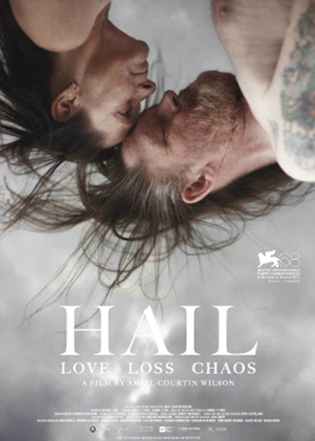
19. HAIL
Amiel Courtin-Wilson may be better known for his documentary work (in particular, the extraordinary Bastardy, my favourite doco of 2009), but with Hail he demonstrates that he is perfectly comfortable working in a traditional narrative format. Hail is a total shock to the system; a kinetic drama that quickly descends into a revenge tale. It’s got the dramatic energy of Kriv Stender’s Boxing Day, and the visceral violence of Steve Kastrissios’s The Horseman, but there’s a visual and aural poetry going on above it all. Lead character Danny is a complex man, and the choices he makes are just as important as his perception of them. It is a sensory work, and that Danny and Leanne are such unlikely protagonists is part of the film’s undeniable power.
18. THE WALL
This extraordinary, Tarkosvsky-esuqe film from Germany has an amazing central premise: a woman on a holiday in a cabin suddenly finds she is cut off from the rest of the world by an invisible wall, and has no choice but to live in her tiny, isolated corner of the planet, completely unaware of what may be happening on the outside. It is presented in a blunt, realistic manner, so believable in its depiction that it verges on horror. Truly compelling, unshakable stuff.
17. CAFÉ DE FLORE
This amazing film echoes the energy Gasper Noe’s work, only does so with necessary subtlety. In its depiction of parallel families – one in 1960s Paris, the other in modern-day Montreal – the film takes some big liberties with its reality, requiring a massive suspension of disbelief that could make or break the viewer’s reaction. It’s a gamble that pays off. Café de Flore is a very subjective story about the self-justification we use to deal with indefinable emotions: ‘soul mates’ when we feel a physical attraction; ‘destiny’ when we can’t process grief. A tremendously engaging visual style and sound design make this a work to be reckoned with.
16. POLISSE
I’m allowing myself one use of the clichéd term ‘gut punch’ in this list, and I’m using it here. Set inside a French child protection squad, Polisse avoids sensationalism by presenting a very complex and layered look at the victims, the perpetrators, and, most of all, the authorities who deal with them. Unapologetically raw, it’s a brilliant and deeply mesmerising film from writer/director/co-star Maïwenn.
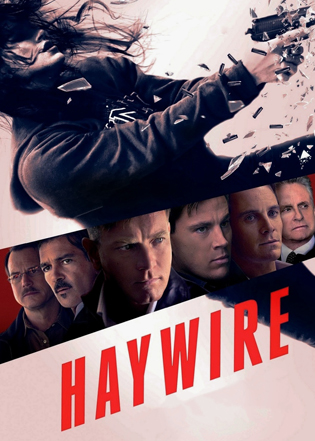
15. HAYWIRE
Perplexingly buried by its distributor – despite being an action film featuring Ewan McGregor, Michael Douglas, Antonio Banderas, Bill Paxton, Michael Fassbender, Channing Tatum and Mathieu Kassovitz – the welcome return of the Limey dreamteam of director Steven Soderbergh and writer Lem Dobbs resulted in a predictably fantastic spy thriller. Star Gina Carano has a great screen presence, and the film manages to centre upon its female action hero without ever descending into exploitation. It has its issues – only the first half of the film is told in flashback, which is a device that never fails to annoy me – and yet those issues refuse to derail this taut film that hits all my obsessive Soderberghian New Hollywood sweet spots.
14. REBELLION
Speaking of Mathieu Kassovitz, his best film as director since 1995’s La Haine is a revealing look at events that took place in New Caledonia during the French elections in 1988. There are at least two sequences that leap off the screen in such a way that – were the rest of the film dull – I would still recommend it for these alone. What could be a dry history lesson is a kinetic, tense war film filled with amazing characters and supremely confident filmmaking. Arguably the most underrated film of the year.
13. ONCE UPON A TIME IN ANATOLIA
This remarkable film out of Turkey pits human nature against the environment in a terrifying, remarkable way. As a murder suspect leads a group of police (including a doctor, grave diggers, and others) around the Anatolian countryside in search of a buried body, philosophical topics are bandied about. The night time they trek in feels like the apocalyptic vision of The Turin Horse, that these men are merely waiting out the end of the world. Their reality, however, is ultimately more routine than that. This strangely subdued film shook me to my core, and I fear I may need to revisit it to truly understand why.
12. MOONRISE KINGDOM
I am yet to see a Wes Anderson film I don’t like, so I am clearly disposed towards his imprimatur on a fundamental level. There is little doubt who is behind the camera on Moonrise Kingdom, and yet this is still a significant stylistic course correction for him. His first story of children coming of age (Rushmore’s Max Fischer was a teen, not a child, and I wouldn’t put The Fantastic Mr Fox’s characters in the same category), as well as his first period tale, still manages to retain the same glorious pretentions that he executes better than any other filmmaker, depicting a style of mannered human interaction that feels honest in its beautiful artifice.
11. CARNAGE
There is a fantastic tradition of theatre-to-cinema adaptations. What feels on stage like a natural and unavoidable use of a single location in which to tell a story, becomes a claustrophobic pot-boiler on film. Like Rope, Twelve Angry Men, Abigail’s Party, Glengarry Glen Ross, Talk Radio and others, Carnage employs its sole setting to enhance the escalating antipathy its characters feel. Its use of a mundane incident to illuminate the deepest roots of human behaviour makes this an epic tale, and director Roman Polanski uses the location to maximum effect, particularly the reflective surfaces that continually suggest the true feelings that lie beneath the clipped civility. I had no idea how much I was missing this sort of film until I saw it.
10. BEASTS OF THE SOUTHERN WILD
Defying categorisation, Beasts of the Southern Wild is easily one of the most original visions of the year. This beautiful tale of a young girl’s journey of survival and strength amongst the poverty of America’s deep, deep south is filled with a tremendous number of unlikely turns, yet remains tonally perfect throughout. With strong, deliberate echoes of Greek mythology, this is an overt – and entirely successful – attempt at modern mythmaking.
9. ZERO DARK THIRTY
It’s a good time to be a Kathryn Bigelow fan. Those of us who love her earlier works (Near Dark, Point Break, Strange Days) have been waiting for a comeback, and cheered when she achieved proper recognition for The Hurt Locker, which I believe is her career best. Zero Dark Thirty, her film about the hunt for Osama Bin Laden may take necessary liberties with the facts, but nonetheless has a distinct ring of truth about it. Bigelow’s eye is both intense and observational, and despite knowing the historical endgame, the journey is a potent and profoundly dramatic one.
8. ANNA KARENINA
In the theatrical trailer for Anna Karenina, Keira Knightly’s Anna sits in a theatre box, a bright light dramatically separating her from her surroundings, as the camera pulls back to reveal everyone in the theatre silently staring at her. It stunned me, and I hoped against hope that this shot would represent the entire film. Astonishingly, it did. This adaptation of the Tolstoy novel is the best on-screen work we’ve seen from writer Tom Stoppard since 1990’s Rosencrantz & Guildenstern Are Dead, and easily the most complete film Joe Wright has directed. There’s something about Russian tales that lend themselves so well to magic realism, and combining it with a classic melodrama is such an immediate success, you wonder why it’s not a more prevalent sub-genre. The deft use of the theatre as the world, as well as the occasional use of a real location that itself tells us significant things about its characters, helping to achieve its status as one of the most perfect cinematic accomplishments of 2012.
7. THE HUNT
The psychology of mob mentality has, with due respect to James Whale, never been as clearly dissected as it has here. When a much-loved man in a small town is accused of paedophilia, the reaction amongst his family, friends and townsfolk is at once inevitable and unpredictable. Every moment, from the seemingly-straightforward events that lead up to the accusation, through to the understandable yet horrific reaction by the town, rings completely true. There is not a false note in this entire work, and director Thomas Vinterberg smartly ensures we sympathise with everyone. It is so direct, so devastating, so clear in its intent from its beginning right through to its definitive final moments.
6. THE CABIN IN THE WOODS
1995’s Scream was a seminal movie for my generation. Although the 1990s were heavily laced with irony, it was an irony free of self-reflexivity. Pop culture was yet to crest and fold back in on itself, and so a horror movie that was aware it was a horror movie (despite being frustratingly unaware it was also a classic murder mystery) was something to behold. But Scream’s success meant that its intended place as the epilogue to the slasher movement only lasted for a moment; it soon became its founder as it gave rise to a whole new wave of teen slasher films (I Know What You Did Last Summer, Urban Legend, etc) and unwittingly became the target of its own joke. The Cabin in the Woods is now that touchstone. A more deft skewering of the genre tropes, the film is so meta, it is only one step away from the characters addressing the camera directly. Its success, however, is in the sheer amount of joy it takes in dissecting itself. It is tremendously funny throughout, undeniably scary in many places, and just an absurd amount of fun. For all its genre-skewering, it refuses to treat the slasher sub-genre with anything but affection, right up to the point where it becomes clear that the film is a giant ret-con; an incorporation of every horror franchise and film into the one universe, and explaining away all the clichés and stereotypes as deliberate parts of a greater plan. How many genre deconstructions actually manage to improve the films they’re making fun of? Writers Drew Goddard and Joss Whedon pulled off an incredible trick, and one that’s a great film unto itself.
5. THE AVENGERS
The Cabin in the Woods is not the only magic trick Whedon pulled off this year. At the opposite end of the spectrum to horror films, he recognised, were superhero comic films, which had begun to self-deconstruct before they’d even had a chance to establish themselves in the first place. Both The Cabin in the Woods and The Avengers display a supreme love of their genre, but The Avengers is earnest and, like Captain America, devoid of irony. Refreshingly so. Whedon has always understood action and character better than most writers, and the assembling of Marvel’s big superheroes needed to not just be good, but be great. Despite the fact that the opening doesn’t quite have the kick that it needs, and that a few jarringly-static shots disclose Whedon’s TV background, the film is exactly what it needs to be: quite possibly the greatest superhero film of all time. Every fight scene is informed by character – the Iron Man/Captain America/Thor fight may be a box that needs to be ticked, but it feels completely natural in context – and each of the nine main characters feels like the lead. Nobody gets lost in the mix, and the upping of the stakes in the brilliantly-executed final act make this the most exciting thing to come out of Hollywood in living memory. Not to mention the best of all the Avengers films.
4. THE INTOUCHABLES
Based on the true story of my family member’s friend’s former neighbour (no, really), The Intouchables has no business being half as good as it is. The story of a wealthy quadriplegic who hires a reprobate to care for him should be a mawkish mess, with pat sentiment and cheap laughs. Unexpectedly, it’s funny as hell throughout, but absolutely nails the drama when needed. It’s not complicated, and nothing is reinvented, but it’s note-perfect throughout and left me more elated than any other film this year.
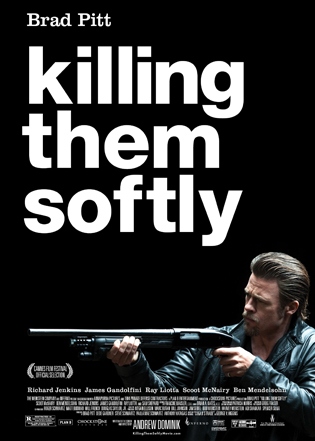
3. KILLING THEM SOFTLY
The scope of Andrew Dominik’s crime film is so much broader than even the ancestral greats of the genre. It is about America’s corrupted heart, the endgame of a capitalistic philosophy. This is a grand film about distinctly un-grand themes, making the quest for money so much more than a device to propel the story. The use of the 2008 election as a backdrop is powerful on a number of levels, just as we are beginning to understand that year’s historical context. ‘Some guys get spooked by the sound,’ says Brad Pitt’s character, the most overt clue that the sound design of this film is telling a whole other story to the one we think we’re watching. There is so much going on here, it is an almost overwhelming experience, and yet the mobster film that plays so wonderfully and ignorantly on the surface would be enough to sustain. I never would have imagined Dominik could come close to matching the perfection of The Assassination of Jesse James By the Coward Robert Ford, but here we are.
2. CLOUD ATLAS
To my eyes, there was no way David Mitchell’s Cloud Atlas could ever be made into a film. And that’s part of the reason I was anticipating it so much. How a book set in the past, present and future, and structured like a Russian nesting doll, could ever make a cohesive narrative feature was beyond me. Astonishingly, it was not beyond Tom Twyker, Lana Wachowski and Andy Wachowski, who collectively adapted and directed one of the most extraordinary cinematic accomplishments I can remember seeing. It is a film about both the inescapable uniqueness of the individual, as well as their fundamental connectedness to everything around them, and how that duality is complementary, not contradictory. These are big themes, but then everything in this film is writ large. Aesthetically, it has the effect of an ongoing montage; what would normally be the climactic culmination of disparate story threads at the conclusion of a film is here sustained for its running time. It is three hours of sensory movement, both indefinable and specific, esoteric and rambling. It is an exploration of the human soul that achieves a level of profundity we have rarely seen before.
1. MARGARET
On the morning of the Margaret screening, I was standing on the train, glancing about at all the people, and a thought hit me: they were not an amorphous crowd, but a collection of individuals, each of whom has a complex and connected life. Sometimes, the most shocking revelations are the obvious, self-evident ones, and I remember the distinct overwhelming feeling at the sheer number of lives crowded into this one space. That it should happen on the way to Margaret is all the more shocking; not fateful, the film would tell us, but coincidental. The fate was constructed in my mind.
Writer/director Kenneth Lonergan’s Margaret was filmed six years ago, but protracted behind-the-scenes tussles kept it from being released until now. It is not difficult to see why the film was so controversial: Lonergan had attempted to make a grand, epic film in the guise of a small character drama, revealing elements of the human condition in a way that had never been attempted before. This is dangerous filmmaking in the best possible way, and he succeeded completely. Margaret is a perfect film, and one of the greatest dramatic works in cinematic history.
Everyone is the lead of their own story, unwitting supporting characters in the lives of those around them. This is no more true of anyone than Lisa (Anna Paquin), a teenager who is changed after witnessing an horrific traffic accident. The magic trick that Lonergan pulls of here is that Lisa is the one character in the film we should not be following. All the events that take place in her life are more profoundly affected by and affecting to the people around her, a fact she consistently fails to comprehend. That we should not grow weary of her despite this, that we should be so deeply invested in her emotional wellbeing is both impossible and essential, and what makes this more than simply an exercise in theory.
It is about communication. It is about mundanity against melodrama. Opera becomes a sudden presence in her world, just as Lisa is told that her life is not the opera she thinks it is. As she runs down the street, deeply upset and disappearing into the New York crowd as Don Giovanni’s Commendatore statue calls mournfully after her, we realise how her life can be two things at once. She is both the centre of her world, and a background player of everyone else’s; she is both grand and insignificant; the centre of an opera, and a face in the crowd. The truth of this overwhelms her in the final moments, as the singers in Tales of Hoffman reflect her life right back towards her.
Lonergan’s accomplishment is to be marvelled. That he should present an idea both simple and complex in such a lucid and emotive manner, that he should have something new to say about the human condition, that he should take the world’s youngest artform to even greater heights, makes this the most remarkable cinematic achievement of 2012.
New Release Films Seen In 2012: The Descendants, Weekend, A Few Best Men, Arrietty, The Grey, Man on a Ledge, Safe House, Tinker Tailor Soldier Spy, Extremely Loud and Incredibly Close, Chronicle, Exit, This Means War, Any Questions For Ben?, Headhunters, Carnage, 50/50, The Battle of Warsaw: 1920, Late Bloomers, Killer Elite, Coriolanus, Café de Flore, John Carter, Early One Morning, Delicacy, My Week With Marilyn, Gone, Contraband, The Source, Jiro: Dreams of Sushi, Bellflower, Rebellion, The Raid, The Ballad of Genesis and Lady Jaye, Margin Call, 21 Jump Street, Best Exotic Marigold Hotel, A Dangerous Method, Sione’s 2: Unfinished Business, Goodbye First Love, Haywire, Wish You Were Here, The Rum Diary, The Hunger Games, This Must Be The Place, Mirror Mirror, Wrath of the Titans, Romantic Anonymous, The Deep Blue Sea, Hotel Lux, The Good Neighbour, Tomboy, The Way, The Well-Digger’s Daughter, Battleship, The Avengers, Game Change, You Will Be My Son, Irvine Welsh’s Ecstasy, The Woman in the Fifth, Swerve, The Innkeepers, The King of Devil Island, Iron Sky, Trishna, Woody Allen: A Documentary, Get the Gringo, Once Upon a Time In Anatolia, Bel Ami, Dark Shadows, The Five-Year Engagement, The Woman In Black, The Dictator, Margaret, Declaration of War, Men In Black 3, Snow White and the Huntsman, Take This Waltz, Elena, A Royal Affair, Le Chef, Prometheus, Not Suitable For Children, Mabo, The Admirer, Rock of Ages, Spy (Shpion), That’s My Boy, Holy Motors, The Cabin in the Woods, Safety Not Guaranteed, Hysteria, The Amazing Spider-man, Bully, Sleepwalk With Me, The Dark Knight Rises, Brave, I Am Eleven, Magic Mike, The Words, Home (Dom), Siberia Monamour, Abraham Lincoln: Vampire Hunter, Bernie, Beasts of the Southern Wild, Las Acacias, Maori Boy Genius, The Intouchables, Bonsai, Killer Joe, Room 237, Monsieur Lazhar, Just the Wind, The Legend of Kasper Hauser, V/H/S, Side By Side, Children of Sarajevo, Tabu, Flicker, Arbitrage, The Sapphires, Cosmopolis, Moonrise Kingdom, God Bless America, The Duel, Jackpot, The Bourne Legacy, Like Someone In Love, Mental, Our Children, The Hunt, Wuthering Heights, Total Recall, Your Sister’s Sister, A Gang Story (Les Lyonnais), The Wall (Die Wand), Polisse, Ruby Sparks, Damsels In Distress, Lore, The Watch, The Campaign, On the Road, Caesar Must Die, We Are Legion, Detropia, Under African Skies, 5 Broken Cameras, The Ambassador, Teddy Bear, Goon, Hotel Transylvania, Killing Them Softly, Love Is All You Need, Looper, Hail, To Rome With Love, Shadow Dancer, Indie Game: The Movie, I Wish, Love Story, Underground: The Julian Assange Story, Searching For Sugarman, Electrick Children, Seven Psychopaths, Savages, God’s Neighbors, Argo, The Perks of Being a Wallflower, Paul Kelly: Stories of Me, Six Million and One, Would You Have Sex With An Arab?, Last Dance, Yossi, Lawless, The Master, Frankenweenie, Sharqiyai, The Sessions, 2 Days In New York, Skyfall, Diana Vreeland: The Eye Has To Travel, Robot and Frank, Alps, The Players, Marina Abramovic: The Artist Is Present, Barbara, The Angel’s Share, Two Little Boys, Bachelorette, End of Watch, Jesse and Celeste Forever, Paris-Manhattan, No, Quartet, The Man With The Iron Fists, Trouble With the Curve, This Is 40, Liberal Arts, The Sound of My Voice, Paranorman, Rise of the Guardians, Save Your Legs!, Gangster Squad, Life of Pi, Sightseers, All the Way Through Evening, Back to 1942, The Impossible, Zero Dark Thirty, Les Misérables, Jack Reacher, You Will Meet a Tall Dark Stranger, Hitchcock, Ted, The Devil’s Double, Cloud Atlas, The Hobbit: An Unexpected Journey (48fps), Pitch Perfect, The Hobbit: An Unexpected Journey (24fps), Django Unchained, Jeff Who Lives At Home, Friends With Kids, Anna Karenina, Undefeated, The Girl, House of Tolerance, The Imposter, Rust and Bone, Kauwboy, Wreck-It Ralph, Amour, Diaz: Don’t Clean Up This Blood, 360, Miss Bala, The Queen of Versailles, Berberian Sound Studio, The King Is Dead, Ai Weiwei: Never Sorry, Margaret: Extended Edition.
Older Films Watched In 2012: The Birds (1963), Troll 2 (1990), Best Worst Movie (2009), Colossus of Rhodes (1961), Batman Beyond: Return of the Joker (2000), A Fistful of Dollars (1964), Mission: Impossible 3 (2006), Megamind (2010), Lars and the Real Girl (2007), For a Few Dollars More (1965), The Good, the Bad and the Ugly (1966), Once Upon a Time In America (1984), Once Upon a Time in the West (1968), Duck You Sucker (1971), Lady Snowblood (1973), Batman: Mystery of the Batwoman (2003), Lady Snowblood 2: Love Song of Vengeance (1974), Robocop (Director’s Cut) (1987), Robocop 2 (1990), Robocop 3 (1993), A Town Called Panic (2009), Private’s Progress (1956), In the Bedroom (2001), Downhill Racer (1969), The Presidio (1988), Mommie Dearest (1981), Went the Day Well (1942), Lantana (2001), The Molly Maguires (1970), Wendy and Lucy (2008), Glengarry Glen Ross (1992), Zodiac (Director’s Cut) (2007), The Thin Blue Line (1988), Doctor in the House (1954), The Way We Were (1973), OSS 117: Cairo, Nest of Spies (2006), OSS 117: Lost In Rio (2009), Captain America: The First Avenger (2011), Conan O’Brien Can’t Stop (2011), Doctor At Sea (1955), Sense and Sensibility (1995), 30 Days of Night (2007), Hellzapoppin’ (1941), The Curious Case of Benjamin Button (2008), Labyrinth (1986), Se7en (1995), The Game (1997), Alien 3 (Assembly Cut) (1992), A Midwinter’s Tale (In the Bleak Midwinter) (1995), Midnight Run (1988), Panic Room (2002), Clash of the Titans (2010), The Social Network (2010), Bullets Over Broadway (1994), Mighty Aphrodite (1995), Everyone Says I Love You (1996), Deconstructing Harry (1997), Celebrity (1998), Sweet and Lowdown (1999), Small Time Crooks (2000), The Curse of the Jade Scorpion (2001), Hollywood Ending (2002), Wild Man Blues (1997), El Mariachi (1992), Roadracers (1994), Desperado (1995), From Dusk Till Dawn (1996), Spy Kids (2001), Spy Kids 2: Island of Lost Dreams (2002), Spy Kids 3D: Game Over (2003), Spy Kids: All the Time in the World 4D (2011), Four Rooms (1995), The Adventures of Sharkboy and Lavagirl (2005), Shorts (2009), The Faculty (1998), Sin City (2005), Planet Terror (2007), Restrepo (2010), Once Upon a Time in Mexico (2003), Machete (2010), Three Colours: Blue (1993), Three Colours: White (1994), Three Colours: Red (1994), Broadcast News (1987), Gambit (1996), 12 Angry Men (1957), Deliver Us From Evil (2006), The History Boys (2006), Doctor At Large (1957), Alice (1988), The Hollywood Complex (2011), Faust (1994), Conspirators of Pleasure (1996), Olesánek (2000), Lunacy (2005), Bad Boys (1995), The Rock (1996), Armageddon (1997), Pearl Harbor (2001), Bad Boys 2 (2003), The Island (2005), Transformers (1997), Transformers: Revenge of the Fallen (2009), Transformers: Dark of the Moon (2011), Superstar: The Karen Carpenter Story (1988), Poison (1991), Safe (1995), Velvet Goldmine (1998), Far From Heaven (2002), I’m Not There (2007), Look Both Ways (2005), My Year Without Sex (2009), Sex, Lies and Videotape (1989), Kafka (1991), King of the Hill (1993), Underneath (1994), Gray’s Anatomy (1996), Windy City Heat (2003), Sleeping Dogs Lie (2006), Solaris (2002), Eros (2004), The Last Time I Saw Michael Gregg (2011), Timecrimes (2007), Pepi, Luci, Bom and Other Girls Like Mom (1980), Labyrinth of Passion (1982), Dark Habits (1983), What Have I Done To Deserve This? (1984), Matador (1986), Law of Desire (1987), Women on the Verge of a Nervous Breakdown (1988), Tie Me Up! Tie Me Down! (1990), High Heels (1991), Kika (1993), The Flower of My Secret (1995), Live Flesh (1997), All About My Mother (1999), Talk To Her (2002), Bad Education (2004), Volver (2006), Broken Embraces (2009), L’Atalante (1934), The Brothers Bloom (2009), The Fifth Element (1997), As Tears Go By (1988), Days of Being Wild (1990), Chunking Express (1994), Ashes of Time (1994), Fallen Angels (1995), Happy Together (1997), In the Mood For Love (2000), 2046 (2004), My Blueberry Nights (2007), Field of Dreams (1989), Crime and Punishment (1983), Calamari Union (1985), Shadows In Paradise (1986), The Saimaa Gesture (1981), Hamlet Goes Business (1987), Ariel (1988), Dirty Hands (1989), Leningrad Cowboys Go America (1989), I Hired a Contract Killer (1990), The Match Factory Girl (1990), Leningrad Cowboys Meets Moses (1994), Take Care of Your Scarf, Tatiana (1994), Drifting Clouds (1996), Juha (1999), The Man Without a Past (2002), Lights in the Dusk (2006), Suspiria (1997), Knocked Up (2007), Platoon (1986), Salvador (1986), Wall Street (1987), Talk Radio (1988), Born on the Fourth of July (1989), The Doors (1991), JFK (Director’s Cut) (1991), Heaven and Earth (1993), Natural Born Killers (1994), Nixon (1995), U Turn (1997), Any Given Sunday (Director’s Cut) (1999), Commandante (2003), Alexander Revisited: The Final Cut (2004), World Trade Center (2006), W. (2008), South of the Border (2009), The Hand (1981), It’s a Wonderful Life (1946), Hunted (1952).
Short Films Watched In 2012: Jabberwocky (1971), Last Trick (1964), Leonardo’s Diary (1972), The Ostuary (1970), The Fall of the House of Usher (1982), The Pendulum, the Pit and Hope (1984), Dimensions of Dialogue (1983), Flora (1989), Food (1993), Suspended (2012), Burn (2011), Am I OK (2012), Sidewalk Scribble (2011), Transmission (2011), The Globe Collector (2012), Into the Sun (2011), Bonny Doon (2011), Julian (2012), Bino (2012), Dumpy Goes to the Big Smoke (2012), Yardbird (2012), Lukomir: Six Months Off (2010), Dottie Gets Spanked (1993), La Luna (2012), Winston (1986), Tangled Ever After (2012), Salomé (1978), Trailer Para Amante de lo Prohibito (1985), The Cannibalistic Councillor (2009), Trickle Dickle Down (2012), A Propos de Nice (1930), La Natation Par Jean Taris (1931), Zéro de Conduite (1933), Building No. 7 (2006), Rocky VI (1986), Dogs Have No Hell (2002), Last Year In Viet Nam (1971), Paperman (2012).

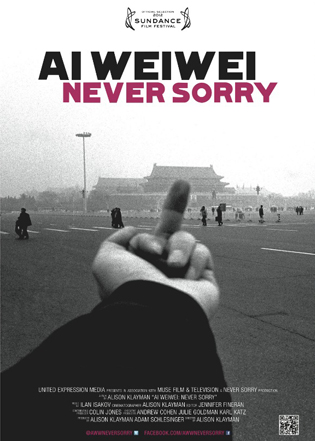
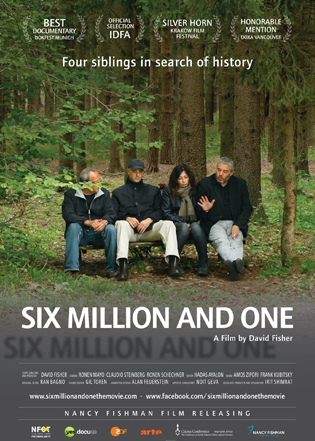
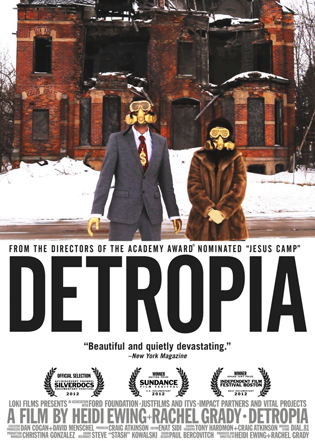
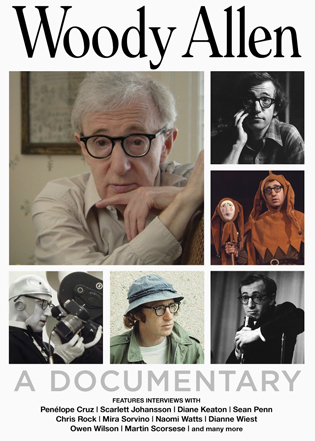
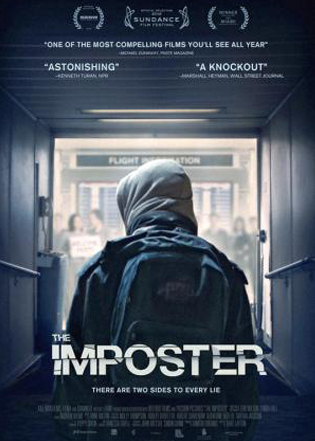
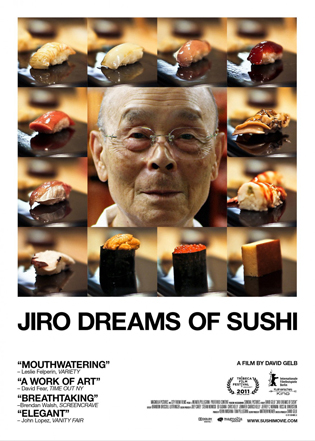
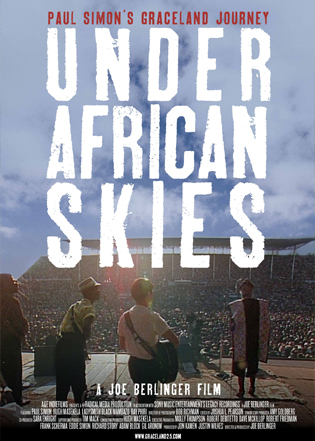
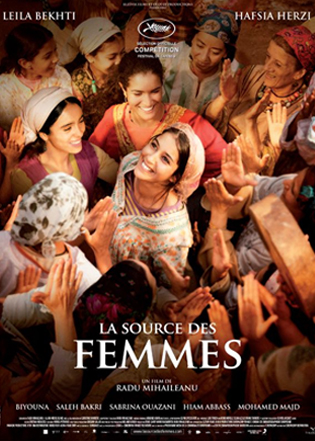
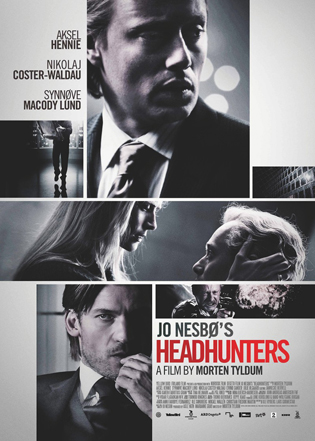
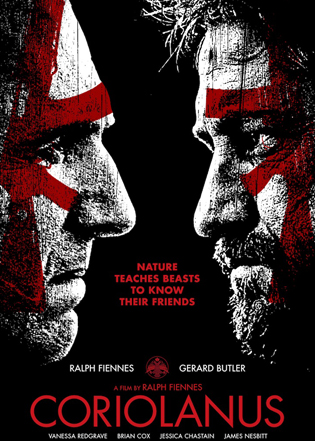
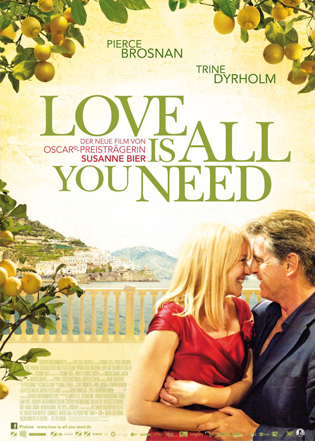
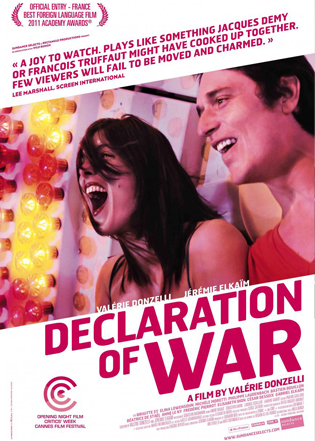
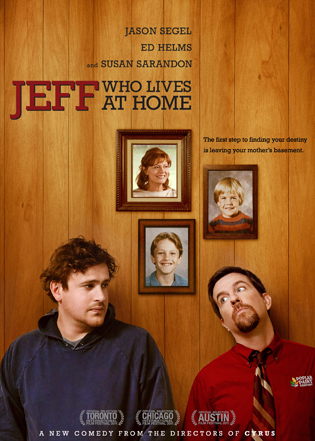
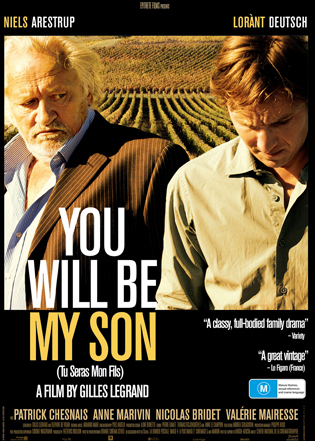
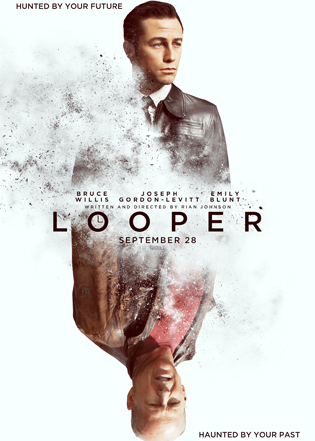
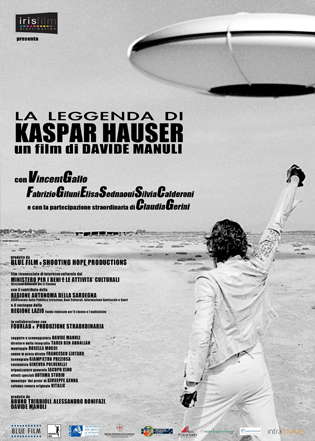
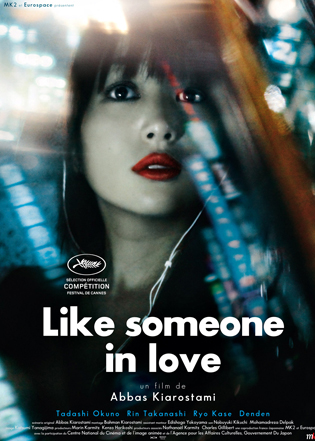
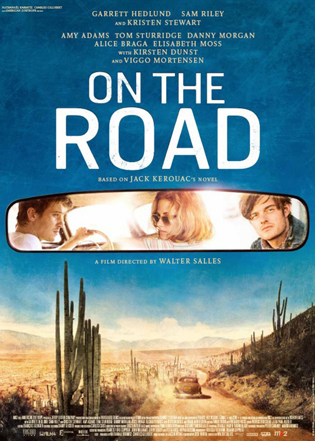
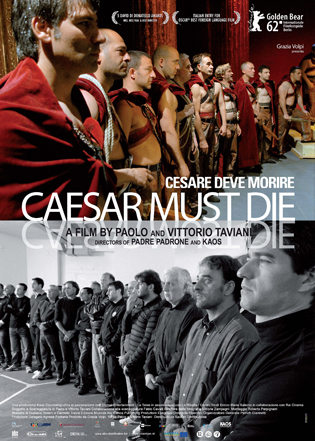
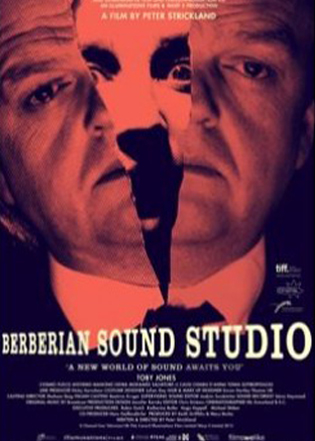
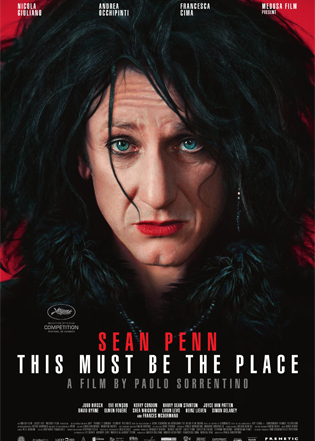
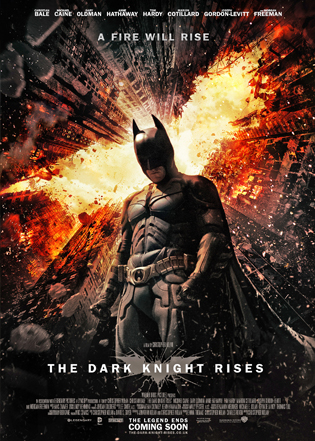
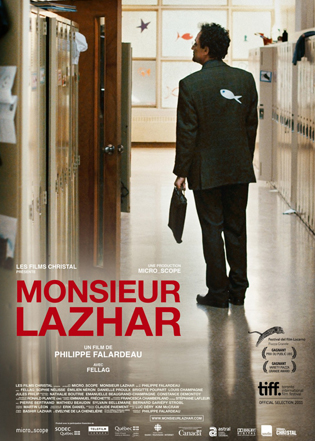
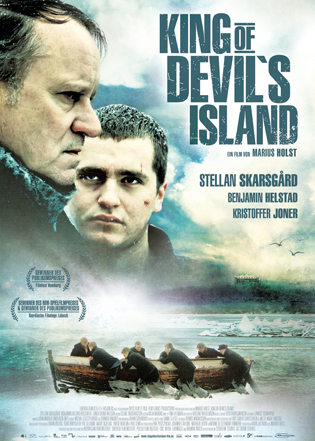
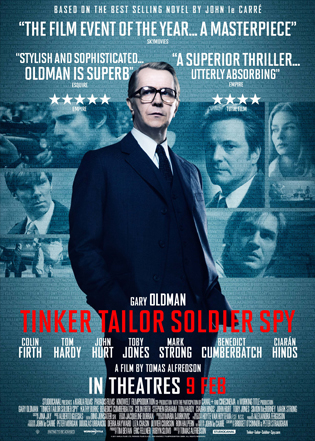
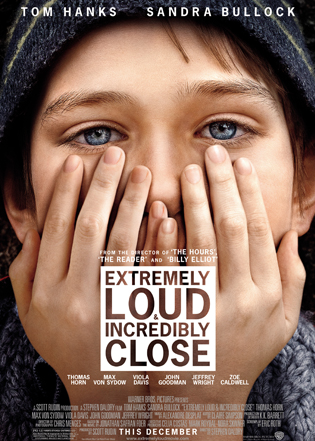
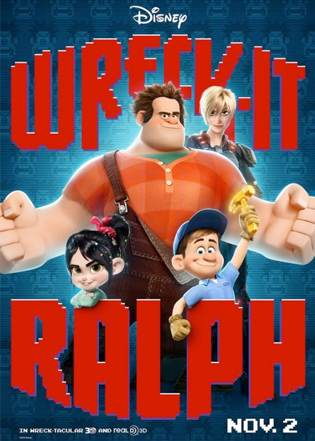
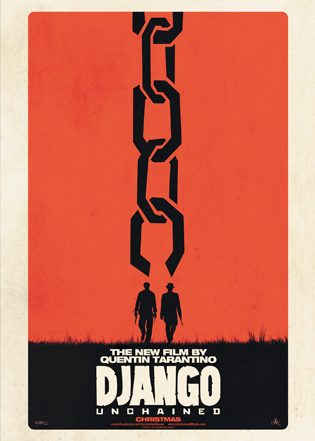
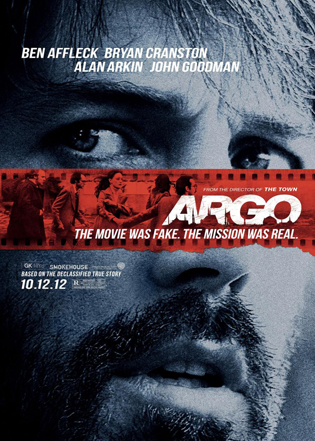
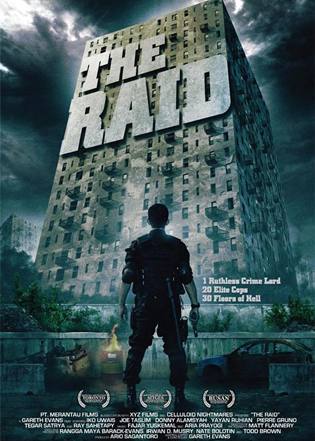
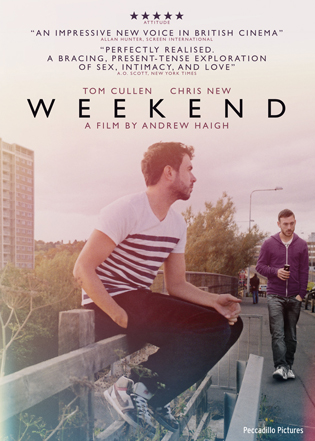
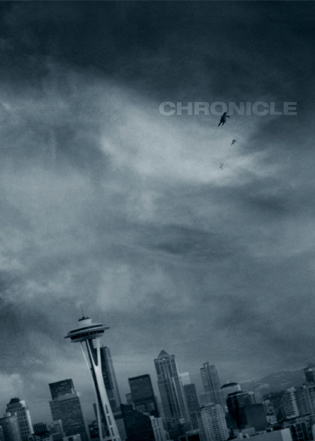
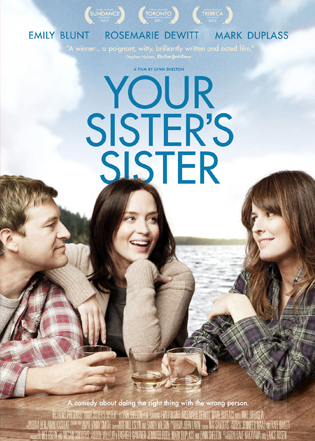
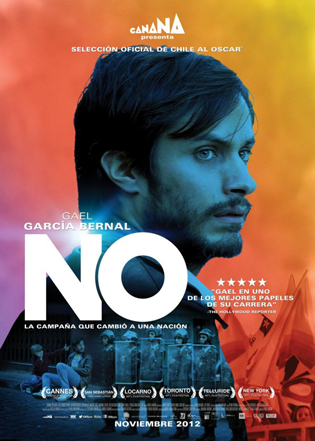
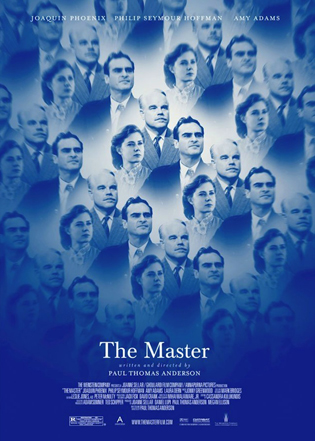
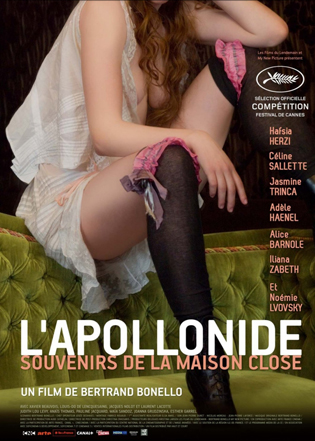
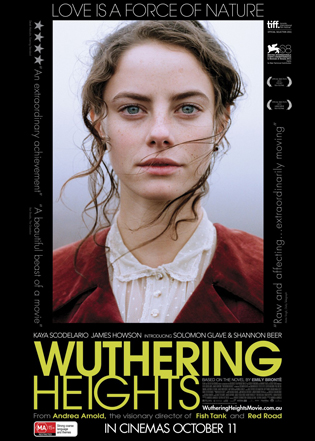
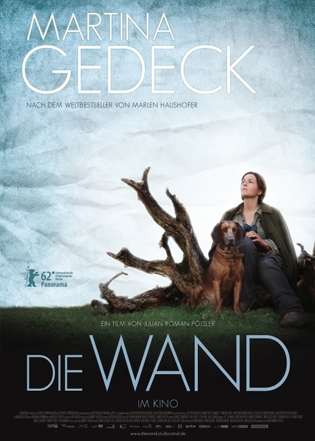
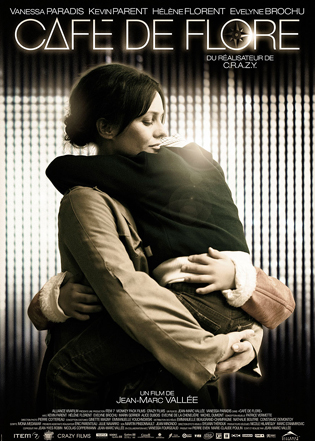
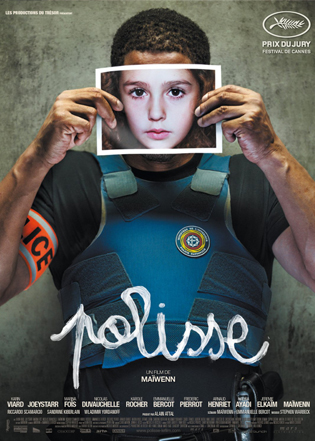
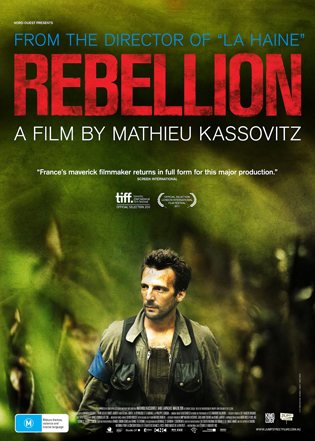
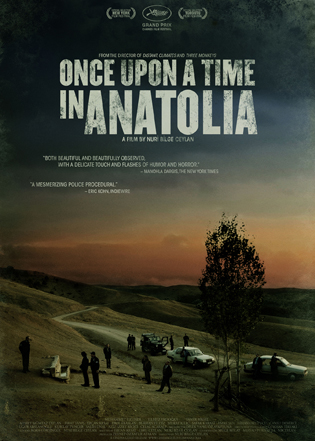
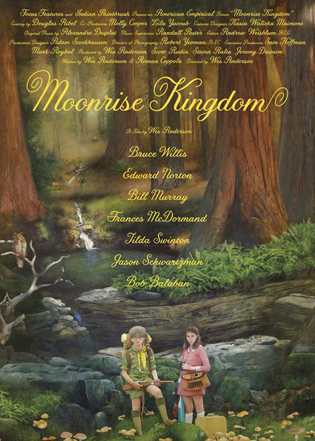
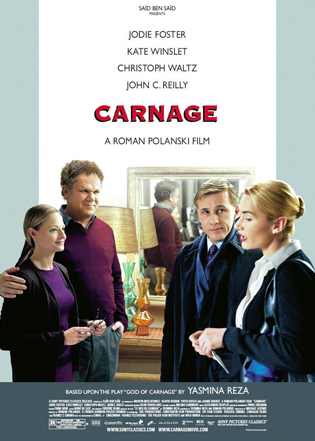
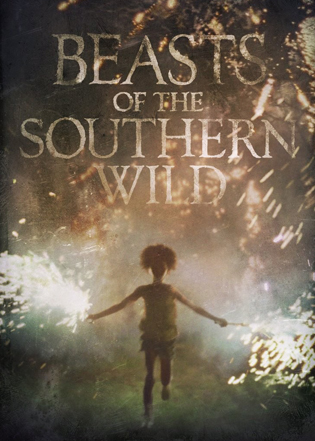
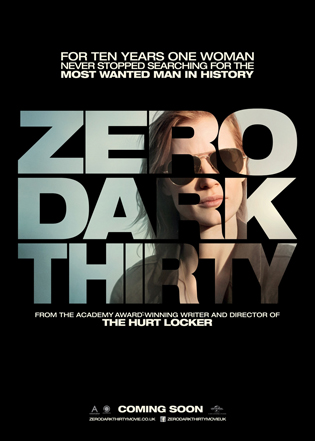
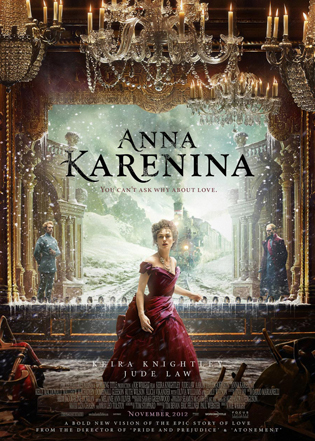
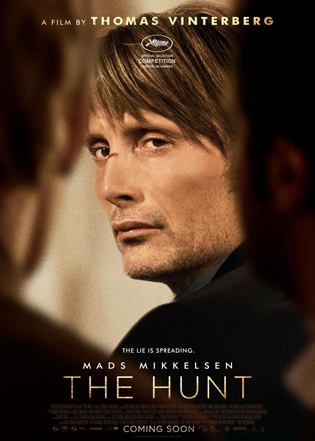
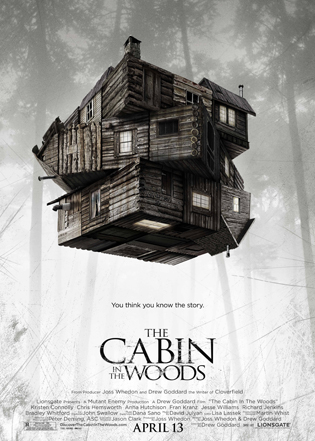
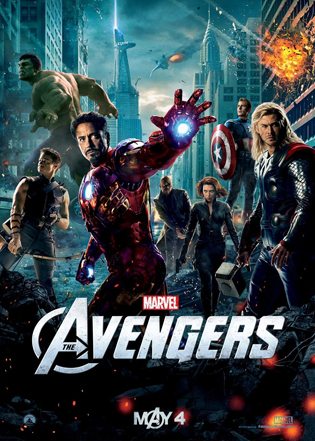
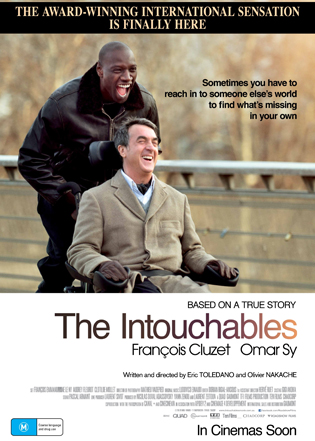
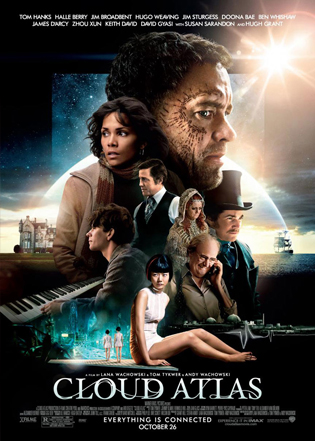
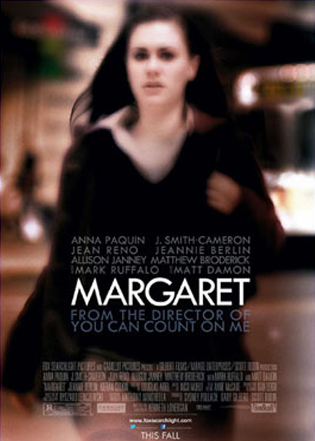
Awesome, I loved The Imposter + Searching for Sugar Man. Been meaning to check out Jiro Dreams of Sushi and will now add Under African Skies to my watchlist.
I also do a Top 50 so don’t think it’s too indulgent! I really like the films in the #50-#55 spot of my own countdown so feel it’s justified too.
Great to see cafe de Flore at #17 as well as The Intouchables at #4. I recently watched Killing Them Softly for the 2nd time and while I can see why so many disliked I still enjoyed it, how great was Mendelsohn. Similarly, I quite enjoyed Cloud Atlas. Margaret is one of my most hated films of the year though 🙂
I was going to avoid Anna Karenina but I guess I’ll have to check it out now. Great list!
Surprised to see Extremely Loud on this comprehensive list. The worst child performance I’ve ever seen, to the point of distraction seeing as he was the lead. A nonsense story made it the disappointment of the year, despite the potential being there.
Killing Me Softly got worse for me the more I remembered it, despite several strong elements. The continuous background political interjections were unnecessary and distracting, and the Gandolfini character added nothing to the story. Less than the sum of its parts.
Great list, incredible viewing, and superb write-ups.
This is a fascinating collection of films I’ve never heard of, films I’m embarrased I haven’t got around to seeing and a sprinkling of films I otherwise would have avoided like the plague.
I wish more critics put out top 50 lists. You’re never going to see eye to eye with any critic, and you’re favourite film of the year may well be sitting just out of reach in their top 20-11. Plus, top 10s end up being overly politicised a lot of the time when you have to start manufacturing reasons to exclude otherwise brilliant films. I’m not someone who sees everything, and I don’t read people’s top lists as a self-serving way to validate my own list or to prime me to troll someone for daring to exlude or include *that* film. So I’m not as interested in the year’s five or ten undisputed masterpieces, I’m more interested in the bulk of what’s worth seeing from that year. So keep with the format – I’m only just getting to the end of your 2011 list.
so good to hear that Australia loves SIX MILLION AND ONE